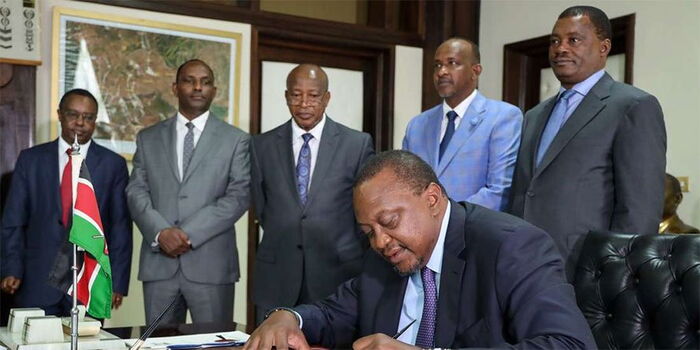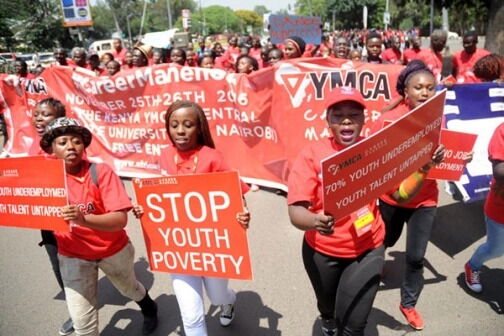[ad_1]
The Legatum Prosperity Index 2019 released on Monday, November 25, by London-based think-tank, Legatum Institute, indicated that Kenya was on the regressing end of economic quality.
Legatum ranked nations on 12 key indicators, wealth, health, education, personal freedom, economic performance, access to markets and infrastructure, governance, social capital, enterprise conditions, living conditions, and natural environment.
By using a ten-year score, the report captured two years of former President Mwai Kibaki’s second term and President Uhuru Kenyatta’s regime based on data shared from the International Monetary Fund (IMF), the World Bank and the International Labour Organisation (ILO).
According to the report, President Uhuru’s regime outdid Kibaki’s regime on health, education, personal freedom, and investment environment but lagged behind on economic quality, safety and security.
In 2019, Kenya was ranked 113 overall out of the 167 countries surveyed, but 135 overall in economic prosperity category as opposed to 101 in 2009. Economic quality measures the strength of the economy in generating wealth for the country.
The report also cut the country’s financial score to 37.5 as compared to 39.3 in 2009.
The country’s public debt crossed the Ksh 6 trillion mark in July 2019, up from Ksh 1.89 trillion in June 2013, as a result, attracting concerns over the inflating loans that were hurting the economy on huge debt repayment burden as reported by the Business daily.
On November 6, the Senate gave a green light to the government to raise the country’s debt ceiling to Ksh 9 trillion up from Ksh 6 trillion, allowing the treasury to add a further 2.5 trillion debt on top of the current 6.5 trillion debt.
The move by Senate brought the indebtedness of every Kenyan to Ksh 189,218 based on the 2019 census results. The government alleged that the raise would enable it pay loans that were due in the next 12 months.
Kenya was also ranked 140 out of 167 on fiscal suitability as opposed to 109 in 2009 based on the escalating debt crisis and the government’s unbalanced budget.
Though the Jubilee administration recorded a better business environment and a 6.3% growth in the economy in 2018 up from 4.7 in 2017, the country still faced a huge unemployment crisis.
The number of formal jobs generated by the economy fell to a six-year low in 2018, worsening the plight of school leavers in the country.
[ad_2]


















































